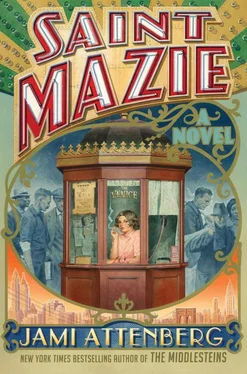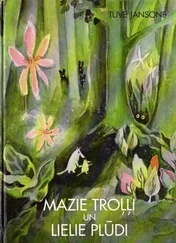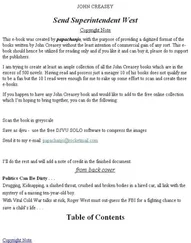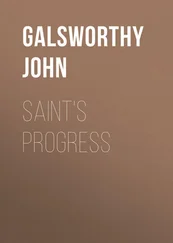Fannie Hurst was charming also, professionally so. I felt like I could sit at her elbow for hours, days, weeks, and never tire of her. She was quite famous then, for her books, which were wildly popular, bestsellers always, though obviously quite mainstream, and not particularly literary. She was also famous for having famous friends. The Roosevelts, for example, adored her. I never met them, but we all knew. Anyway, she was extremely well known, even though barely anyone has heard of her these days. Her name pops up and then disappears again. If only the writing had been better.
But she was a delight! Dry as the day, funny, funny, funny. She was an activist, albeit sometimes a misguided one. For example she was supportive of the African-American literary community even if her books weren’t viewed as such necessarily, and she liked to slum downtown on occasion. She was fascinated with the lower class. Also the young. People of color, poor people, young people, anyone who didn’t have what she had, or had something she didn’t. The only people she didn’t really care that much for were the Jews — because of course she was a Jew herself.
So at dinner that night, I was a target for her because I was young and pretty and, as I said, indeterminate. Also I was rather handsome. I had inherited my mother’s looks — she was a fabulous, glamorous, well-crafted woman — and by then Fannie was on the southward slope of middle age and, to be honest, she had never been known for her great beauty. So there, I had something else she didn’t have, too. And I was certainly eager to please her. So she invited me to sit next to her at the table, even going so far as to switch cards at the last moment, sending an editor from Harper’s to the other end of the table. What did she care? She was Fannie Hurst.
It was a very long table. And you know, there were chandeliers dripping from the ceiling, a dozen uniformed maids dishing out the food, endless bottles of wine. Another young man might have felt intimidated, but I came from money, early Dutch settlers on my father’s side, and then my mother was a Spanish heiress. So I felt right at ease there. I had a trust fund that would secure me for many years. I had been waiting to meet these people for a while. I came from California and had only a few introductions. We were rich but my father marrying the Spaniard had turned him into a bit of an outcast in the family. My mother had wanted to be an actress, that’s how we had ended up in Hollywood. Oh, you don’t need to know all of this. It’s going in my memoirs right now, anyway. You can’t have it, it’s mine. What you do need to know is that many of the other assistants in publishing were struggling, and I had felt like I had to hide where I came from. And that night I had this sense that at last I was where I belonged.
Over dessert, everyone was arguing about the politics. At the time Fiorello LaGuardia was mayor, and it was his second round at bat. And he was a pretty good mayor, he had installed a lot of good programs, but we were still mocking him for some reason. He was very short. It might have even just been his height. God, who knows. We were very drunk. And Fannie was amused by all of our jokes. but then she very suddenly stopped herself and said, “You cynical bastards. For once I’d like to hear people talk about a New Yorker doing something right instead of wrong.” She was right of course. We were a very cynical lot.
So then we started talking about whom we would have liked to see run for mayor instead. When it was time for LaGuardia to go, who would be next? And then it very quickly turned into this kind of parlor game, everyone having to go around the table and nominate who’d they vote for. So there were professional athletes named, and a religious figure or two, and I believe Dorothy Day was in there, and Dorothy Parker too and I think Fannie was hoping someone would nominate her but no one did. And then when it was Fannie’s turn she said, “Mazie Gordon.” Of course we all said, “Who?” She really treasured it, being able to stump everyone. You know, took a significant sip of wine from her glass, licked her lips, that sort of thing. And then she spilled.
Mazie’s Diary, May 12, 1934
I saw Ben again at our regular spot, this all-night no-name diner by the Brooklyn Bridge. He asked about me helping the bums again. I don’t know why he’s so interested.
He said: I could never do it.
I said: Helping people’s the easy part. It’s the rest of life that’s hard.
George Flicker
About six months after we moved in to Knickerbocker Village I met this nice woman named Alice. She was a nurse at the time, and I had a small accident at a construction site, a brick falling on my hand, and I ended up in the hospital. There, you can still see it, the scar, right there. Alice tended to me with great care. She was from Vermont and had served in the first war and landed in New York City after. She was a very brave and bold woman. We talked about our service and I cracked a joke about people forgetting all the work we did for our country but I wasn’t really kidding, of course. And she said, “Forget about what you did already, what have you done lately?” And it was this real kick in the pants that I needed. I’ve always been a hard worker, but she was right, I needed to stop worrying about the past. Maybe I needed to let it go. Then she told me that she was applying to medical school, she was going to be a doctor. She had her heart set on University of Michigan because they were the first in the country to accept women to their medical school. She had been watching the doctors for years now and she felt that she could do what they did, though she wasn’t so sure they could do what she did. And at the end of this I realized she had cleaned and bandaged my hand and I hadn’t even noticed. She had a magic touch, that Alice. So I said, “But if you go away to Michigan how will I ever see you again?” And she said, “You’ll just have to wait for me to come back.” Well, I married that girl six months later. I wasn’t taking no chances on anyone else snapping her up.
Mazie’s Diary, June 1, 1934
Maybe I had a little roll in the hay with George Flicker last night. Maybe it was all right. Maybe I didn’t mind it one bit.
George Flicker
Are you married? I don’t see a ring on that finger. What are you waiting for? Are you in love? I know, I know, I’m a nudge. Only I loved being in love so much, I only wish the same for the good people I meet.
Mazie’s Diary, July 12, 1934
It was the strangest thing, seeing George tonight, late, after I got home from the streets. He’d waited up for me. I closed my front door and I heard him knocking a minute later. His face seemed more familiar than it ever had before, even though I’ve known him all my life. All of a sudden he was glowing like there was a spotlight on him. He looked so handsome. Every part of his face seemed perfect. I don’t even know where it came from, I never expect to feel anything for any man anymore, at least not in that way. All I knew was I saw a good man next to me in bed.
Phillip Tekverk
Fannie said, “I know a woman of greater compassion than any I have known before.” Someone shouted, “Does that include you?” She said, “I’m not compassionate, I’ve just got a lot of guilt.” Everyone laughed, and she continued. “I know a woman who works long hours in a tiny cage all day long, dealing with the public, which is something none of you could do, you ill-tempered, pampered artists. Then, after fourteen hours in this box, she walks the streets of the Lower East Side helping the homeless and suffering wherever she goes. No matter how filthy or drunk or evil-smelling a bum may be, she treats him as an equal. Just an average woman doing something quite extraordinary. What have you done for humanity lately? Agonize over the placement of a semicolon? This woman gets off her derriere and actually does something important with her life. Mazie Phillips for mayor, I say.” There was probably more to this speech, but this is what I can recall, drunk as I was, old as I am. Everyone hear-hear’ed and cheered, and then moved on to the next subject. I had an idea, though. I told Fannie I wanted to meet her. I said it sounded like she would make a great book, and I wasn’t lying to her when I said that. But also I wanted to get in Fannie’s good graces because I wanted to go to every single dinner party she threw for eternity.
Читать дальше












